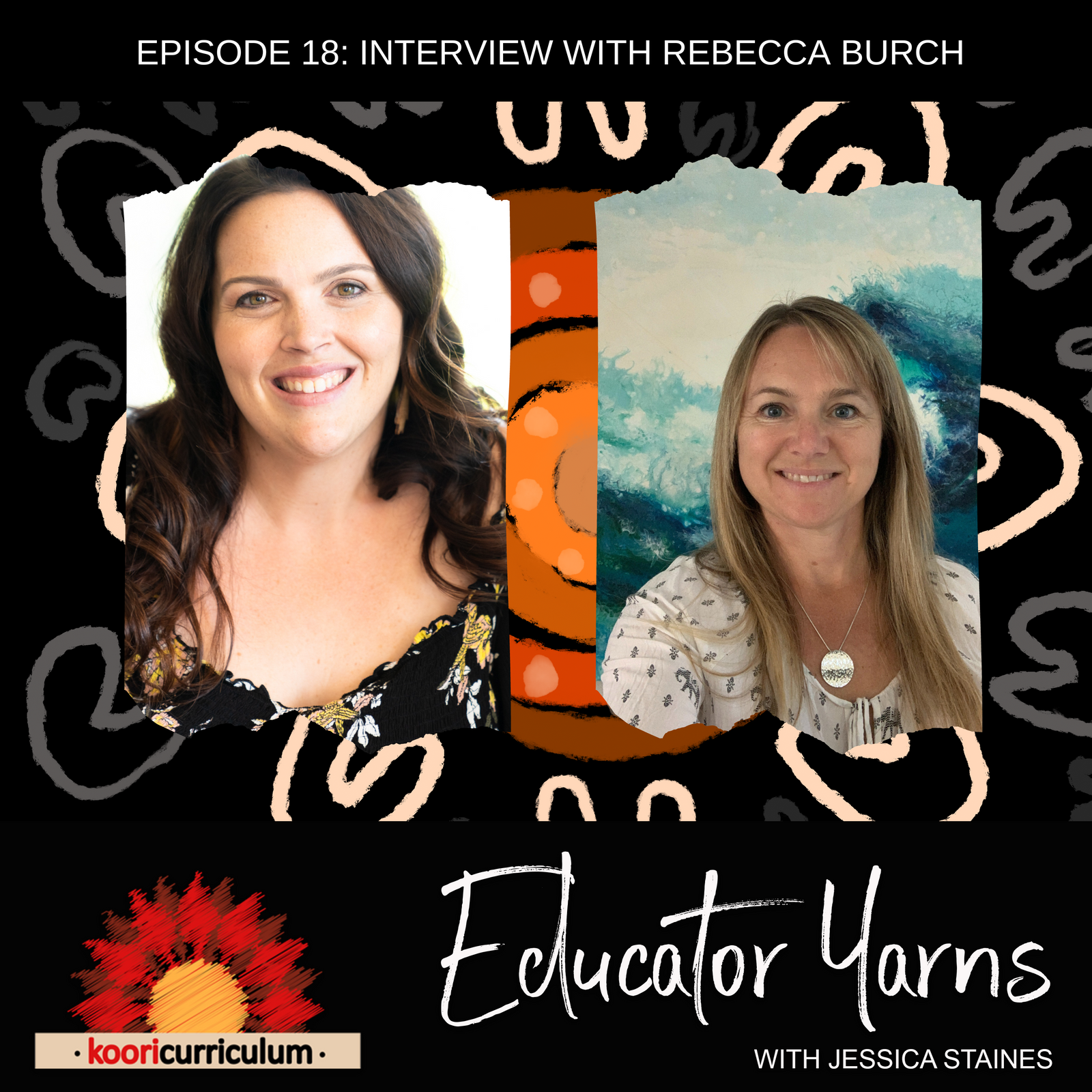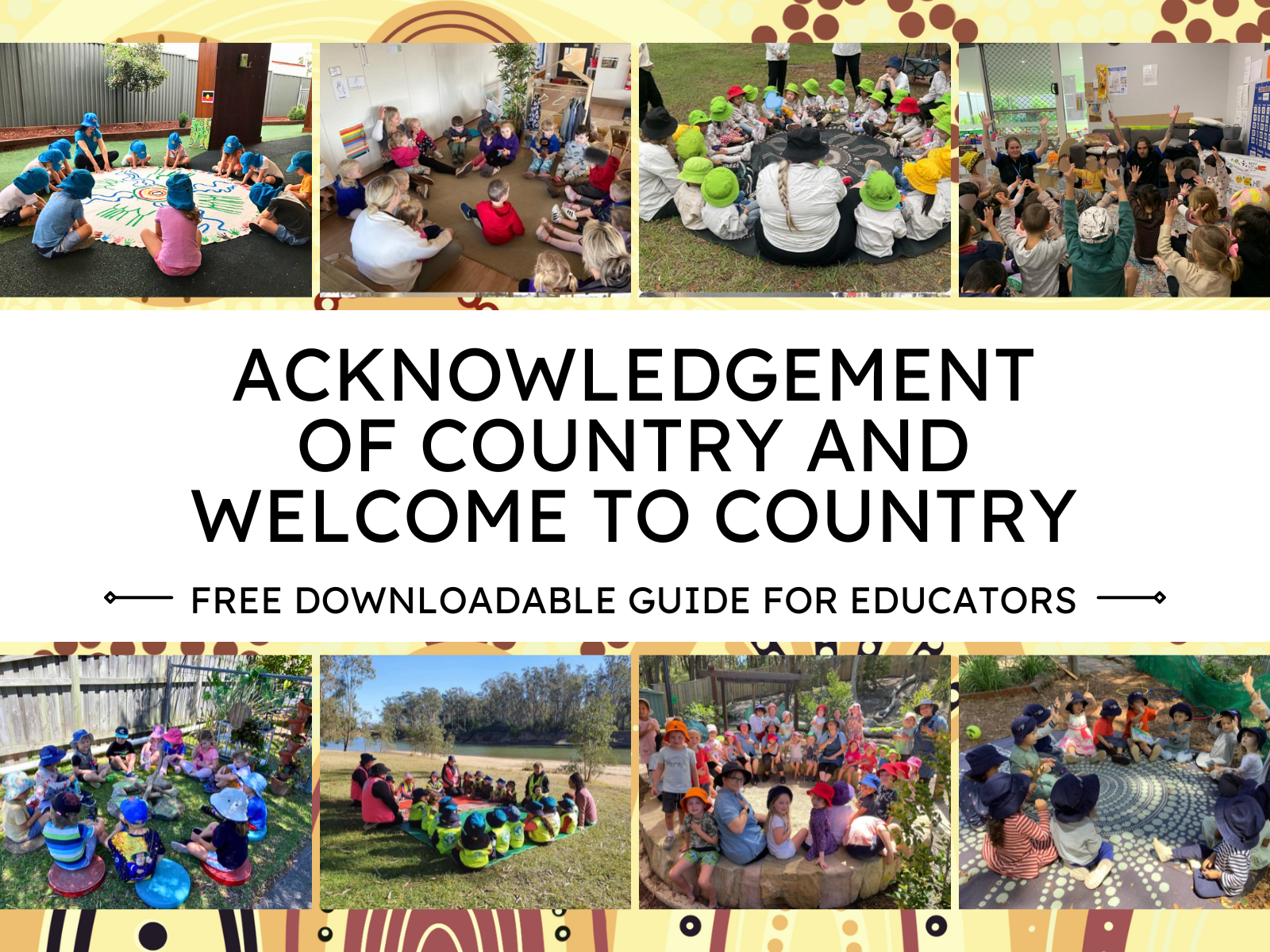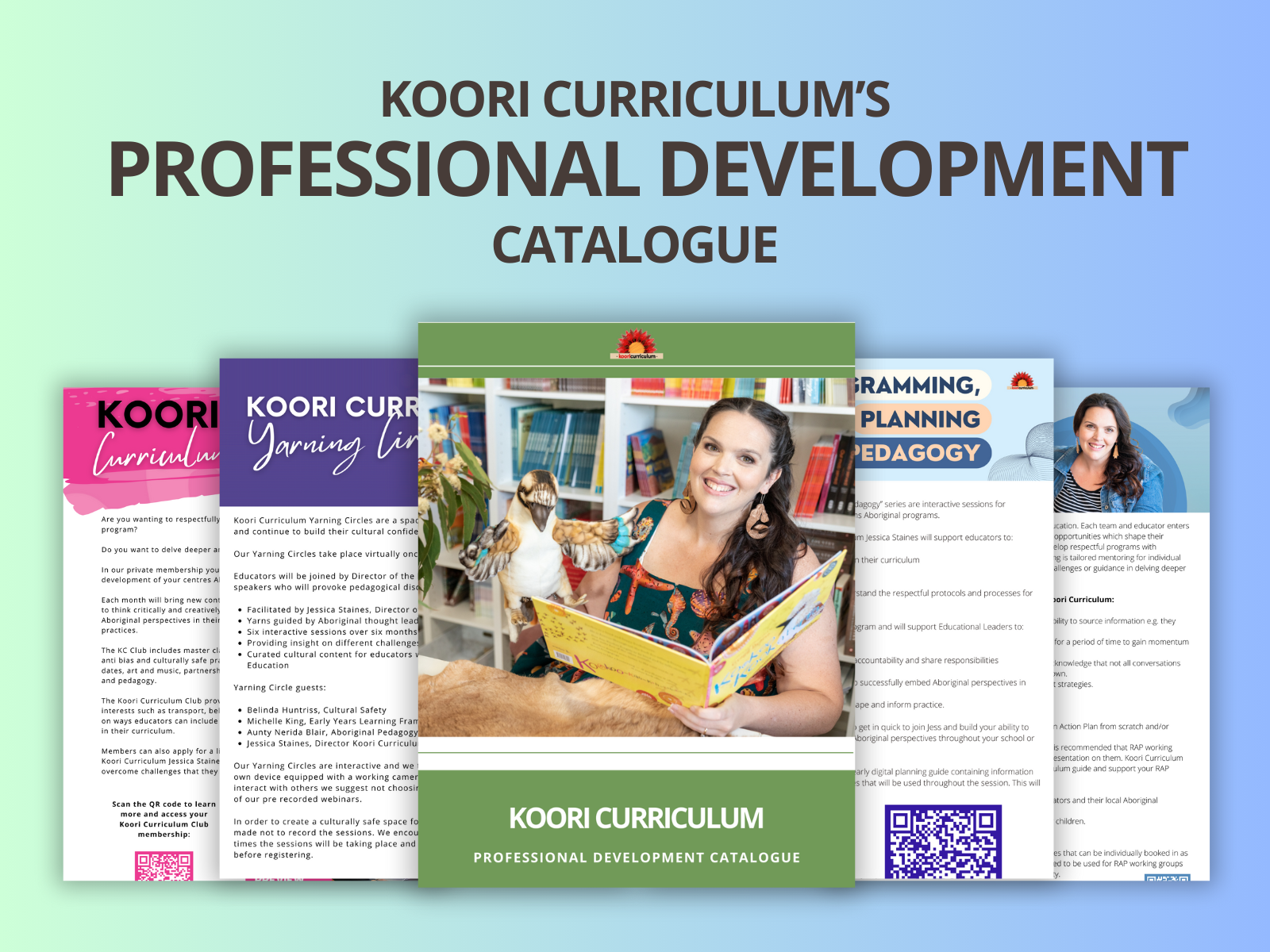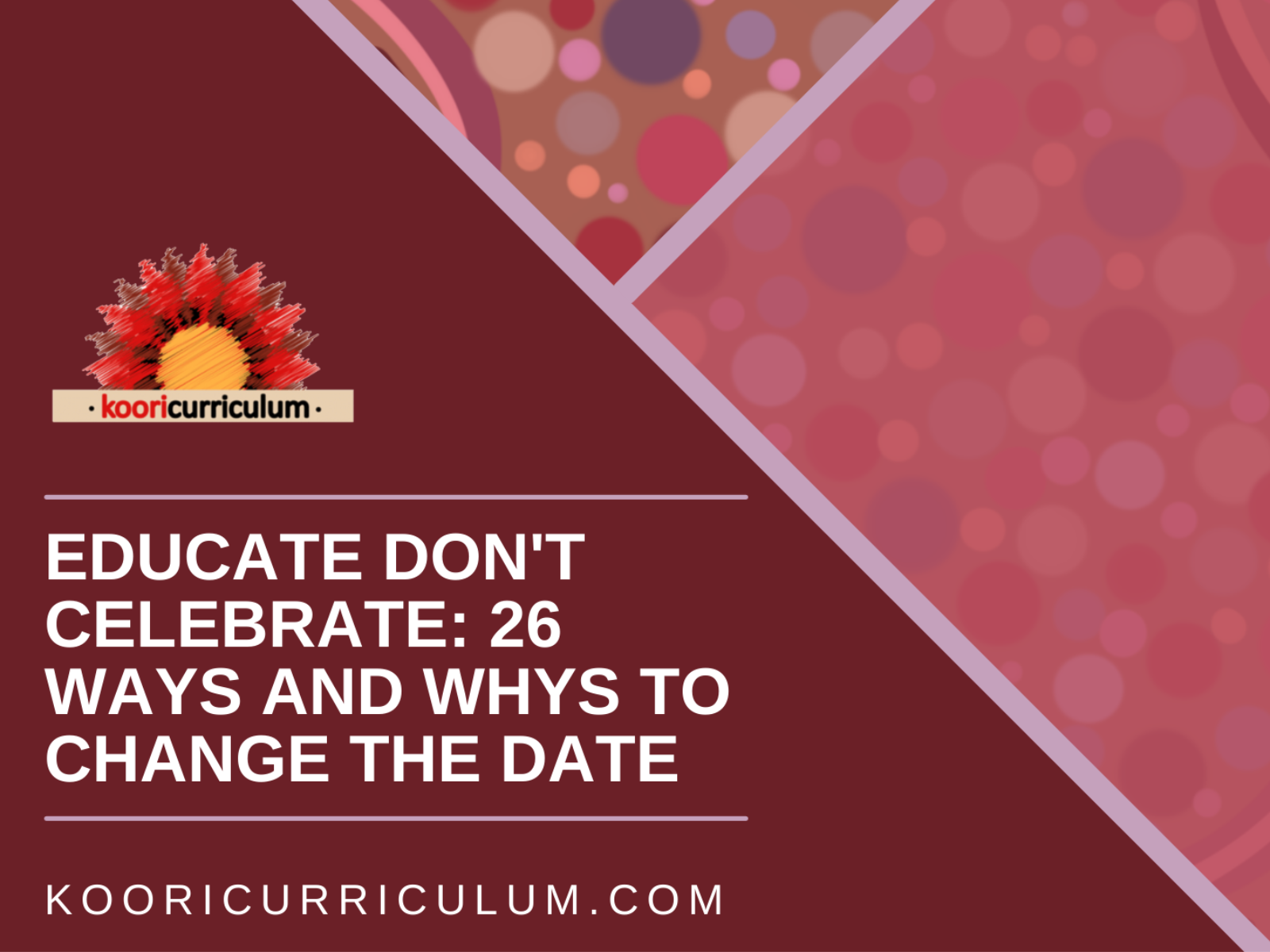
Educator Yarns Season 2 Episode 18: Interview with Rebecca Burch
In this episode of Educator Yarns, Jessica Speaks with Rebecca Burch, educator and leader at Pottsville Community Preschool located on the Bundjalung Nation, Tweed Shire, Northern NSW.
Rebecca discusses her Nature Explorers program which provides nature-based learning to not only the children of her service but to the broader community as well. She talks passionately about using nature as her catalyst for learning as well as the educational value found in nature enquiry and of course the power of Dadirri, a deeper more spiritual connection to Country.
SHOW NOTES
Rebecca Burch:
I think it has immense benefits to not only children, but also to educators wellbeing as well. We can do research about what that tree is and maybe what those seeds might've been useful. What is the land telling us and using those concepts of Aboriginal perspectives, foster environmental stewards within the children, so that they have a sense of passion to take care of their community.
Speaker 2:
You're listening to the Koori Curriculum Educator Yarns with Jessica Staines.
Jessica Staines:
I'd like to acknowledge the [inaudible 00:00:40] the traditional owners of the land on which I am recording this podcast. I pay my respects to their elders both past present and emerging and pay my respects to all Aboriginal and Torres Strait Islander listeners.
Hi everyone. My name is Jessica Staines, director of the Koori Curriculum. For those of you that aren't familiar with our podcast, season two is all about our new book, Educator Yarns. We are meeting and interviewing with our educator contributors from right around Australia, who will be sharing little snippets of their piece. It will be a combination of stories about why embedding Aboriginal perspectives is so important, how to connect with local community, how to embed Aboriginal perspectives in our programme, how to work with anti-biassed approaches and so much more. So make sure you listen in and enjoy the episode. Bye for now
Today on the podcast I'm meeting with Rebecca Burch who works at Nature Explorers alongside Cassie Sophia and the amazing team at Pottsville Community Preschool. Together, they have been creating a unique nature based education programme. And today we'll be discussing the many ways in which they embed an Aboriginal perspective.
Okay, everyone. So today we are going to be interviewing and having a yarn with Rebecca Burch, and we were really fortunate to have Rebecca contribute an article to our new Educator Yarns books. So welcome Rebecca, and thanks for joining us on the podcast.
Rebecca Burch:
Thanks for having me.
Jessica Staines:
I just wanted to get you to start just by quickly introducing yourself and telling us a little bit about your role at Nature Explorers for people that haven't heard of it before.
Rebecca Burch:
Yeah, sure. So for me, I'm just a passionate advocate for Nature Play. I think it has immense benefits to not only children, but also to educators wellbeing as well. I've worked in early childhood field for over 25 years now, mostly in rural settings and in community-based preschools. And I currently work with an amazing team at Nature Explorers.
So we're based in the Tweed Shire, which is in Northern New South Wales. And it's a nature based educational programme operated by Pottsville Community Preschool. So for the children that attend the preschool but also the children that might attend other early childhood settings and are just community members have an opportunity to attend sessions at Nature Explorers. And this is the preschool aged children. And we also run playgroup sessions. So families can join as well. And we take these children out into the community into a whole range of sites.
We're really fortunate that we've got some amazing spaces all in walking distance. So we visit the beach, the Junes, the Creek, the bush land. We have a mangrove forest, we have a paperback forest, rain forest, and we align with the early years learning framework. And we made all the curriculum requirements and all the national quality standards, but we just do it outdoors.
So we support children's holistic learning in and with nature. Where they get to engage in really authentic and meaningful learning, and then because we're outdoors, children have that opportunity to develop that awareness of cultural connections to land and knowledge of sustainable practises. So Nature Explorers is very much a childlike programme. It's very inquiry based and we aim to foster environmental stewards within the children so that they have a sense of passion to take care of their community and everything that lives in there, whether that's plants, whether it's animals, or the tiny little ant that they find.
Jessica Staines:
That sounds like a dream job and what an amazing programme that you've created. I just think that's incredible and what a gift for your community to be able to access something like that. A lot of what you're saying is really resonating with me because something that I always say in our embedding Aboriginal perspectives workshops, when we're talking to educators about how to develop an acknowledgement of country in their programme, is that an acknowledgement of country is not just something that you say, it's something that you do.
And it really is about helping children to understand what their role as a custodian means. And what it means to be a steward and a caretaker of the land. And I believe really strongly that before children want to take care of something before they can understand what respect means in reference to that, that there needs to be a love for it first. And I feel that a lot of time got to pass very quickly before families and children get the opportunity to stop and just be present with country and have that relationship with country. Would you agree?
Rebecca Burch:
Yeah, absolutely. And I guess our programme gives to children that unhurried time, they go out for five hour session. We were not bound by set routines or timings of when you have to be indoors or outdoors. It's very flexible and very free flowing and children are just immersed in nature. And when they're out there, we take very minimal resources when we go and children learn to be very resourceful in their learning.
So rather than a bucket, they learned that they can use a palm shake that carries water. And rather than shovels, they learned that they can use a stick as a digging stick. So they are interacting, engaging with all of these natural resources every day and learning about them. And when they're picking up the seeds, we're able to kind of talk and share with them, where do they think that seed come from and which tree and we can do research about what that tree is and maybe what those seeds might've been used for.
And I guess that's where we tie in and embed some of those Aboriginal perspectives that we have, educators have some knowledge, and we sharing that with children. And we also researched with children along the way about the different uses of all of these different plants, whether it was for food or medicine or using a for tools. Yeah. It's all there ready, cause you're out there on land.
Jessica Staines:
So one of the things that pops into my head when I hear you talk is that it sounds like you have a lot of knowledge about ecosystems and habitats and so forth. And I think one of the hesitations that educators may have, with this and it's not dissimilar to hesitations that they have with including Aboriginal perspectives in their programme is that they don't have that strong knowledge base themselves to be able to do that intentional teaching or to guide. And so how did you get all this knowledge? How did you become knowledgeable in nature pedagogy and play and environmental things, what was your starting place?
Rebecca Burch:
It started a number of years ago, I guess. Firstly, we have a really supportive director and management team that support the professional development of our team. And we also have a really talented team. So we're constantly learning off each other all the time. We've all had different backgrounds and experiences. So we learn off each other. One of the key persons that came into our programme a number of years ago was uncle Frank, who is a local Fingal Head resident.
And we invited him into our centre. He does cultural education talks. And so we invited him in to spend some sessions with the children out in the bush. And once we're out there, he was sharing what different trees were and what their uses were. And he told some amazing stories and it was so rich and the children got so much out of it.
But us as educators got so much out of it, we realised that it was kind of like an informal professional development. And so that began sort of a relationship with him. And I've spent many coffees and many phone calls chatting with him over a long period of time. And we have a professional development opportunity because we wanted to share that knowledge and that information to other educators in our whole Tweed Shire.
And so we were able to support uncle Frank and his business, and he does a cultural connecting to country talk, and we go through a bush walk, and he shows us all the different plants. We get to taste and smell and feel them. And then we also share about how we can use those in our education settings. So our team have been going to that as well as inviting educators across the Tweed Shire to that.
And I think that relationship with him that we've all had has been really enriching to our knowledge. It's made us feel comfortable and confident with some knowledge. I've learned a lot about him and we also work quite closely with June Care and they've taught us a lot about different plants and as we've become more comfortable and have that knowledge, we can easily share that with children. And often it's co-collaboration and co-learning with children too, because sometimes we might know the answer, but we give children those opportunities to research. We go and get one of our reference books and read up about it. Or we might ask somebody or they might've been used some apps to look into things as well.
Jessica Staines:
Awesome. And I think this is it, is that what you're saying is that it's a one stop shop. It's not like you just did one webinar or you did one conference day or something like that, but this is something that you've worked towards. And this relationship with uncle Frank over a period of years and time, and you're constantly developing your knowledge base.
And that's exactly the same with Aboriginal programmes is that there has to be an initial starting place, but it's a journey to continue to scaffold and develop your own knowledge and understanding and that needs to happen in order to have real depth in your programme and curriculum with children. So I know you wrote about uncle Frank in your piece that you contributed to our Educator Yarns book, and he was really key for you to see have an official business name that we can refer people to?
Rebecca Burch:
He doesn't, he's just a modest man that works at Fingal Head. He's well known in our area. He has an amazing wealth of knowledge, not just on bush tucker, but of the stories and the history, extensive history of the whole Tweed Shire. He is quite an amazing man.
Jessica Staines:
So potentially if there's listeners that are joining us in this episode, and they're wanting to talk to uncle Frank, cause they're in your area and don't have that connection, would it be okay if they reach out to you through Nature Explorers? Cause you have a Facebook page for Nature Explorers, would that be okay?
Rebecca Burch:
Yeah, that's absolutely okay.
Jessica Staines:
Great. So could you just share with us a couple of ways that you have been including Aboriginal perspectives in your nature programme. Because I think, when I speak to educators who are just starting out, the one thing that many do or that they understand is that there's a strong relationship and synergy between Aboriginal people and country. And so often there's lots of nature experiences that are reflective of Aboriginal culture. And this seems to be a natural starting point for a lot of educators, but I know that there's definite opportunities for us to go a little bit deeper. So would you be happy to share how you're doing that in your programme and practise?
Rebecca Burch:
Yeah, it is kind of hard to narrow down just a couple of examples. Cause I feel like there's just little pieces throughout the whole day. I know lots of early childhood services do DDD and some mindfulness sessions and we bring that into our programme and support children to kind of really focus on what's in their environment in a very deep way. If we're going on a walk, it might be a kilometre or two long, but we might actually take four hours just to walk a hundred metres because we've really getting them to tune into their environment, looking at what's beside them up high, what's down low, taking moments to look in and listen using all of their senses.
And I guess we tie that in as far as what is the land telling us and using those concepts of Aboriginal perspectives, for example, we had somebody tell us that there was a koala in a tree down the path and we could have just walked straight there and kind of went, let's look at the koala kids on top of the tree. But instead, we went on the speak adventure that was all led by the children. And we talked about, well, how would we know if there were animals living here. What would we look for?
And they started talking about food. And so then the scat. And so we talked about what kind of animals and they talked about a koala and this led to us looking at the bases of trees. They found the koala poo, so then we looked on the trees and found the scratch marks on the trunk. And so those, these whole process of inquiry based learning before it even got to the point where somebody spotted the koala and it's just about tuning into their environment and on that same track that they spotted a mark in the sand that we investigated.
And they discovered from the track that it was a koala and that koala goes across that track every morning. So you see that little marking in the sand most days. And so we're able to bring in about tracking and that kind of concept. So I guess it's an approach that's just embedded little bits and pieces. It's not a particular activity or time of the day. There's just knowledge. So that might've been knowledge about the tracking and taking notice of the environment, what it tells us.
Jessica Staines:
And this is the same approach that we use in our embedding Aboriginal perspectives workshops, is that you're not teaching about Aboriginal culture as if it's the topic, the theme or the interest, but you're looking at experiences or ideas or interests that children have. And you use that as your way in. So if the children are interested in koalas or so forth, or they've observed koalas in the environment, then how can we include an Aboriginal perspective in that experience.
So I think that the similarities are there, like it's the same principles. It just looks a little bit different in practise from context to context. I just wanted to explain to our listeners as well, what to dadirri is. So it may not be a term that many of them are familiar with. So essentially to dadirri is deep listening and connection to country. So a lot of people can explain to dadirri by, if you were laying on the beach and you're in that meditative state where you're half awake or half asleep and you can feel the waves coming and you can almost feel the vibrations going through your body.
It's a deep connection and deep listening. So it is like in a way, as you explained, Rebecca, like a meditation to an extent. So for people that want to learn more, you can search for the word to dadirri. So, D-A-D-I-R-R-I.
Rebecca Burch:
And there is stem from Miriam Rose. So there is lots of stuff on the internet about that, but you're right. Like wind, the interest came up about the koala, we were able to share local language about what these animals are called in Bundjalung typically in our bush settings, children find lots of nature's loose parts, so lots of sticks. And they naturally start wanting to build cubbies and shelters and dens.
And it's a great opportunity to explore all those stem concepts, but it's also an opportunity to explore different in traditional Aboriginal structures. So, you know, we've got a little book that has the different structures that have been built across Australia and why they're different because of the location and the kind of weather there is and the kind of resources that are available. So I guess we just find whatever the children are interested in, what little aspect of Aboriginal perspectives can we embed.
Jessica Staines:
Great. And so how have the families taken too, so some of the families are actually with you during the five hours aren't they, they stay with their children?
Rebecca Burch:
In the playgroup sessions, they do. And that's really special that families and the younger children so, under age four, get to spend that time together. In the preschool sessions for the three to six year olds, it is educators, and children so the families don't join us on those sessions. But we get to share what the children do in a number of ways. Nature Explorers team have been really innovative and really creative in their documentation.
And they actually share a video at the end of every session. So families get to watch a movie. So they're very much seeing, not just photos, but video and children's voice about what's been happening in the day so that they can feel a part of it. And it gives an opportunity for children to be able to kind of share about their day. It's not just about taking a piece of paper home that they drew a picture on. They're actually getting to sit down with mom and dad watching this movie and seeing in action what that child did for the day.
Jessica Staines:
Yeah, fantastic. What a great way to educate families. So they can have that continuity of learning as well for their children. That's incredible.
Rebecca Burch:
And there's a lot of continuity. I didn't quite answer the question about the families, but they have been extremely supportive and very positive and really loved the programme. And there's continual stories, how they are doing nature explores on the weekends that their children are taking them back to these little walks in the environment park or taking them down to the Creek or collecting the rubbish and sharing all of that knowledge. So we're hearing all the time, how children transferring that knowledge and those ideas and concepts in their home environment and in the community.
Jessica Staines:
Yeah. Fantastic. And I think it's those ripple effects that getting people back to nature, to connect with country, to be still, to have that sense of belonging, to have that respect and love. And so that custodian shipping caretaker flows through. And I think you're doing an incredible job and I'm so excited to be sharing your programme with readers of our new Educator Yarns books. So thank you so much for coming on and yarning with us, Rebecca. I really appreciate it.
Rebecca Burch:
That's right. Thank you for having us.
Jessica Staines:
I hope that you enjoyed this episode and had a great little sneak peak between the pages of our new book, Educator Yarns. If you'd like to ask questions or connect with me, best to join our Facebook group, the Koori Curriculum Educator Community, which is free for all of our listeners and members. That's a wrap for season two of Educator Yarns. Thank you so much to all the deadly educators who have jumped on to be a part of our podcast to share their stories of the many ways that they are embedding Aboriginal perspectives in their programme and engaging with anti biassed goals and principles.
It's been amazing to be able to yarn with you all and to have you write for our new book, Educator Yarns. I hope our listeners have enjoyed listening to your stories. And if you have please, leave us a five-star rating and review, it means that our podcast is more discoverable to other educators who are searching for the ways that they can include Aboriginal perspectives, more meaningfully in their programme.
If you want to stay up to date with what's coming next. And there will definitely be as season three, which we have already started working on head over to the Koori Curriculum website and sign up to our newsletter. You can also join our Facebook community, the Koori Curriculum Educator Community, and we have another community for families, Koori Curriculum Community for Families over on Facebook, where you can post questions, engage, share resources. I'd love for us all to stay connected. Bye for now. And thanks for listening.



